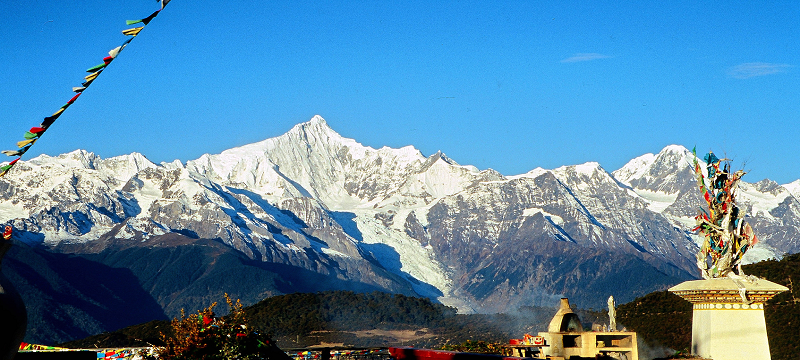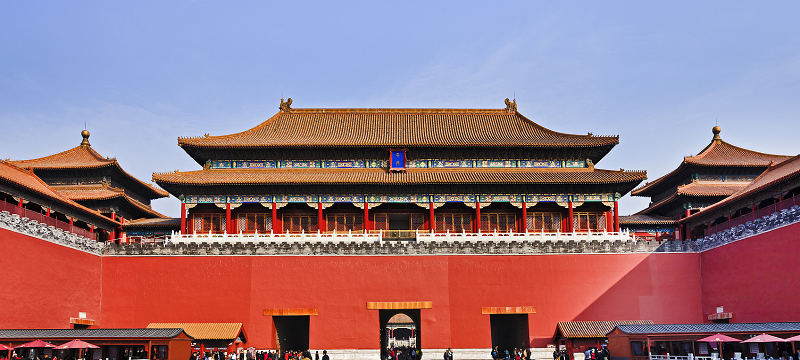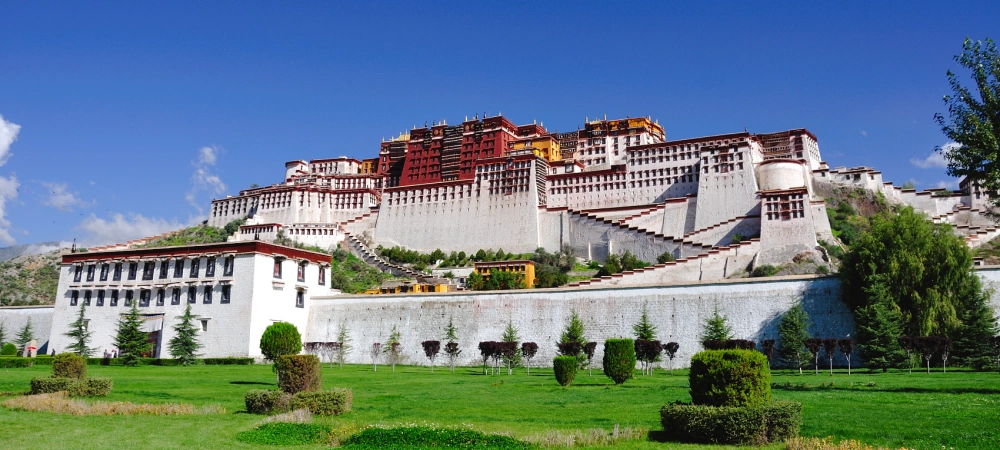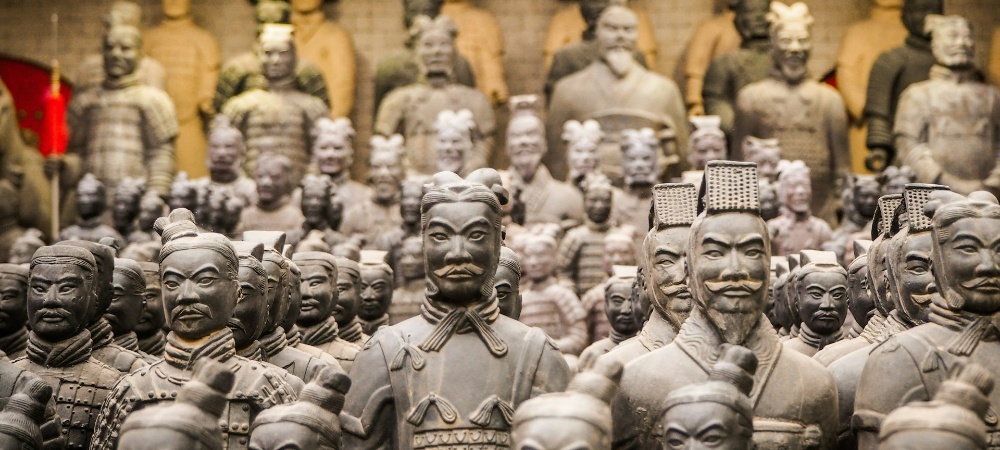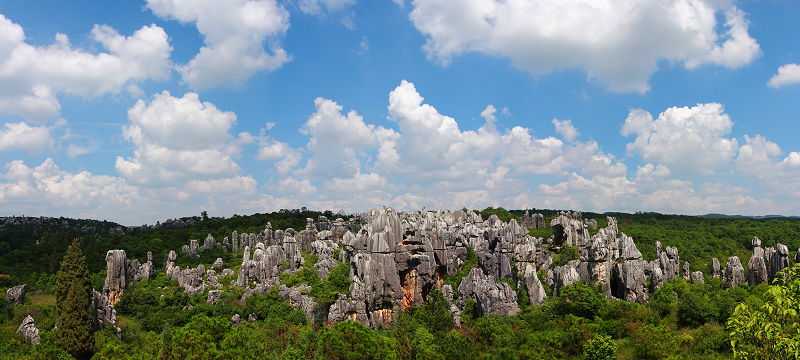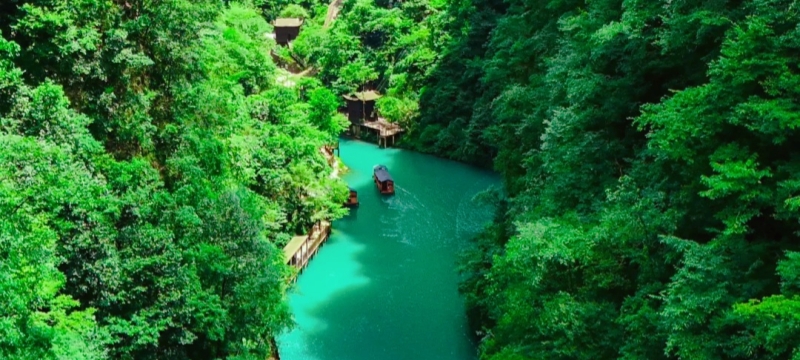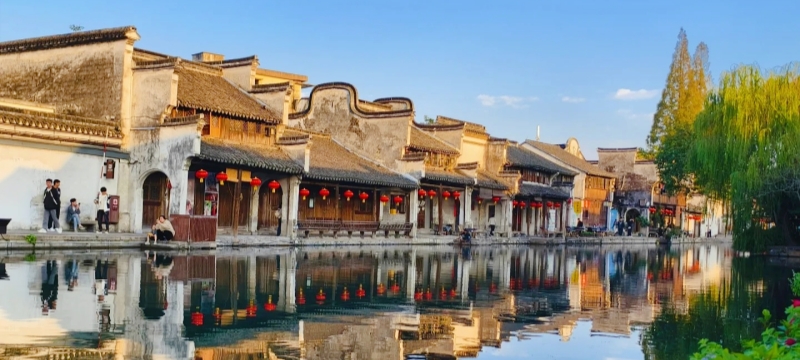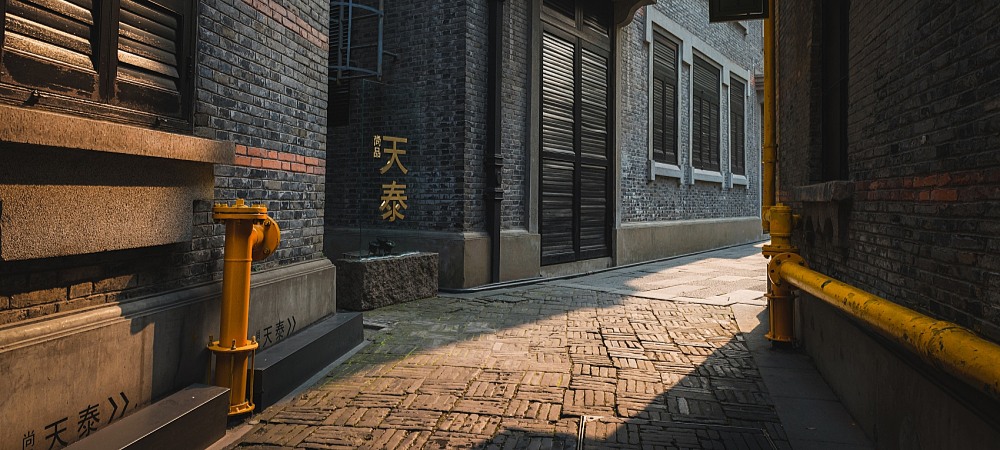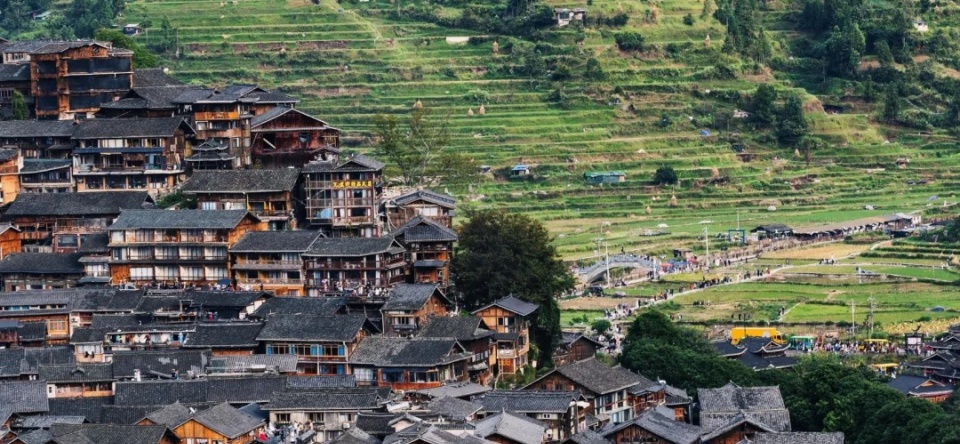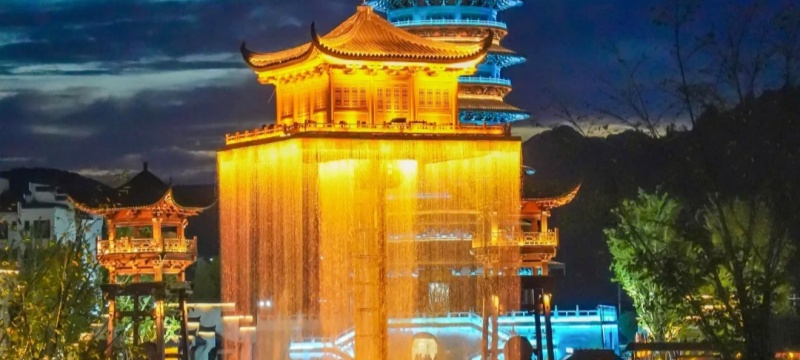The City Awakened by the Shadows of Bamboo and lake Nurtured by "Haizi"
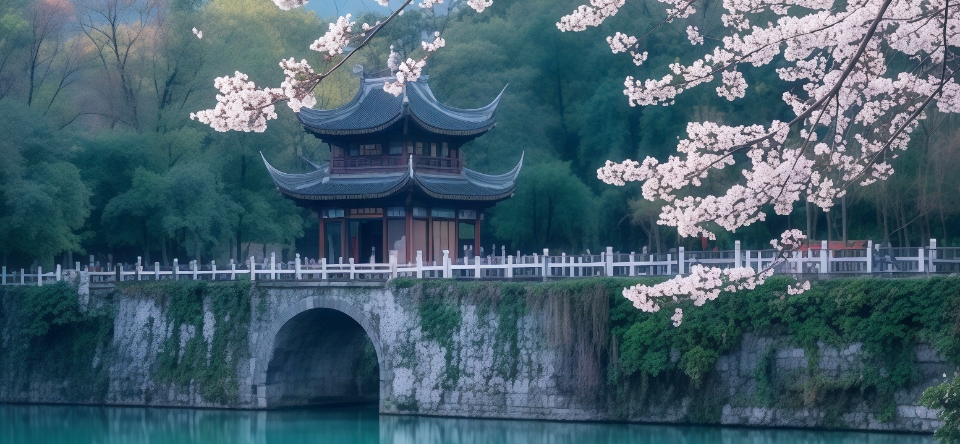

Chengdu → Dujiangyan Irrigation Project → Jiuzhaigou Valley Scenic and Historic Interest Area
In the morning mist, I watched the giant panda leisurely peeling the bamboo shoot sheaths. At noon, I felt the water patterns from two thousand years ago among the cracks of the stones in Dujiangyan. At dusk, the alpine lakes in Jiuzhaigou seemed to crumple up the clouds and hold them in their embrace.
During this three-day journey in western Sichuan, there were fragments of bamboo leaves clinging to my trouser cuffs, and the coolness of the water from the Dujiangyan irrigation system lingering in my palms. My eyes, however, feasted on the beautiful scenery of mountains and waters. It turns out that three hundred li north of Chengdu, time has been shaped into various forms.
Morning mist clings to the bamboo.
The morning in Chengdu is filled with the aroma of Sichuan pepper. When the metro line 3 heads towards the Panda Base, the carriages are packed with children wearing panda headbands. By 7:30, the sun has just climbed over the bamboo tops, and a long queue has already formed in the park - all here to see "Hua Hua".
The cub sat on the wooden platform, her fur looking like an old cotton-padded jacket that had lost its color in the rain. While other pandas were fighting over bamboo by throwing it around, she slowly peeled the bamboo shoots, her front paws resting on her knees, looking just like an old gentleman in a puppet costume sitting cross-legged. The light spots filtering through the bamboo leaves danced on her dark circles, even more dazzling than the flashes from tourists' cameras. A keeper came over with an apple. She suddenly pricked up her round ears, turned her head and accepted the treat with half of her face - yes, this cute head-tilt was exactly the trick that made her famous.

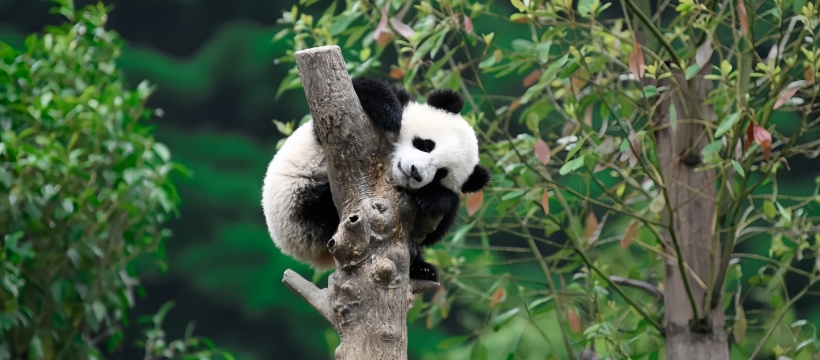
The golden flow of the midday stream
At noon, I took an intercity train to Dujiangyan. The railway track followed the Minjiang River closely. The river water was muddy and yellow, with golden-like sunlight shimmering on it. At the entrance of the scenic area, an auntie was selling straw sandals, which were woven with thin bamboo strips. She said they were blessed with the spirit of Li Bing's water control.
Only when standing on the Fish-mouth Water Dividing Dyke can one understand the trick. In the middle of the river lies a stone weir shaped like a plowshare, which splits the Minjiang River into two streams. The inner stream is clear and obediently flows into the Bottle-neck to irrigate the Chengdu Plain; the outer stream is muddy and surges out of the Feishayan with pent-up energy. The tour guide said this is called "dividing water in a 4:6 ratio and sand in a 2:8 ratio", and the craftsmen two thousand years ago actually understood fluid mechanics. Reaching into the groove on the Lijié stone wall, the icy river wind passes through the fingers, and it seems as if one can touch the sparks from when Li Bing and his son chiseled the mountain.
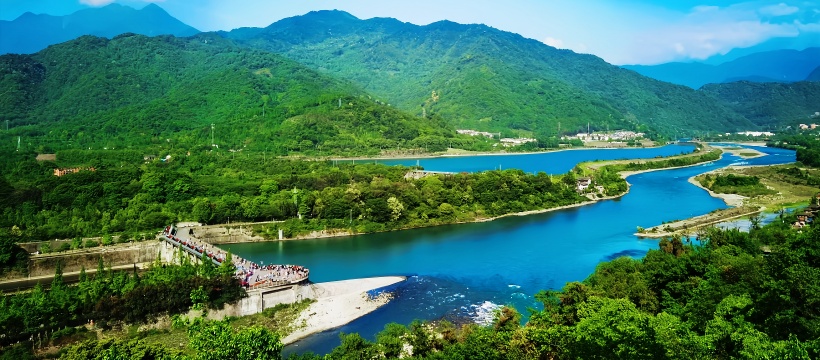
Sunset Tints the Sea
The bus to Jiuzhaigou takes seven hours to shake. After passing through Maoxian County, the mountain slopes become steeper. A Qiang woman selling cherries carries a bamboo basket and sways at the tunnel entrance. The tour guide reminds everyone, "Don't sleep, be careful of altitude sickness." Before the words are finished, the snoring of the old man in the front row has already mixed with the sound of the stream at the source of the Minjiang River.
When I got up and went into the valley in the morning, Changhai Lake was still veiled in a milky mist. By noon, when I reached Wuhua Lake, the water had come alive with color - a mixture of peacock blue and emerald green, with the dark red sunken logs weaving a spider web on the lake bottom. The most astonishing sight was Jinghai Lake, where the reflection of the snow-capped mountains was even clearer than the real ones. When the wind blew, the clouds lost their way between the lake and the sky.
In front of the wooden house of the Tibetan village, an old grandma was baking qingke cakes. She said that the water in Jiuzhaigou was the magic mirror for the goddess to groom herself, and it broke into 108 pieces and fell into the valley. I looked at the water spray of Nuorilang Waterfall and thought that this explanation was more touching than the karst theory in the geology textbook.
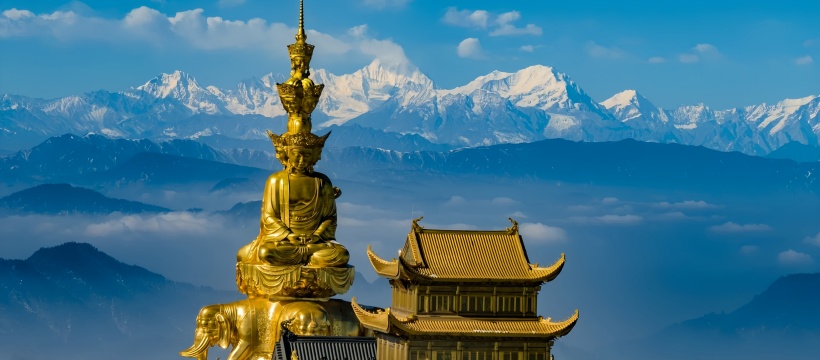
Fragments Collected on the Way Home
On the way back, I opened my phone album and found that I had taken countless photos: the cute poses of the pandas, the fish mouth of Dujiangyan, and the cascading waterfalls of Jiuzhaigou. The three days in western Sichuan gradually blurred with the announcements of the subway stations, leaving only the panda fur stuck to my trouser cuffs, the grains of sand from Dujiangyan embedded in the soles of my straw sandals, and the pine needles of the larch trees from Jiuzhaigou tucked in the seams of my backpack, faintly giving off the scent of fir.

